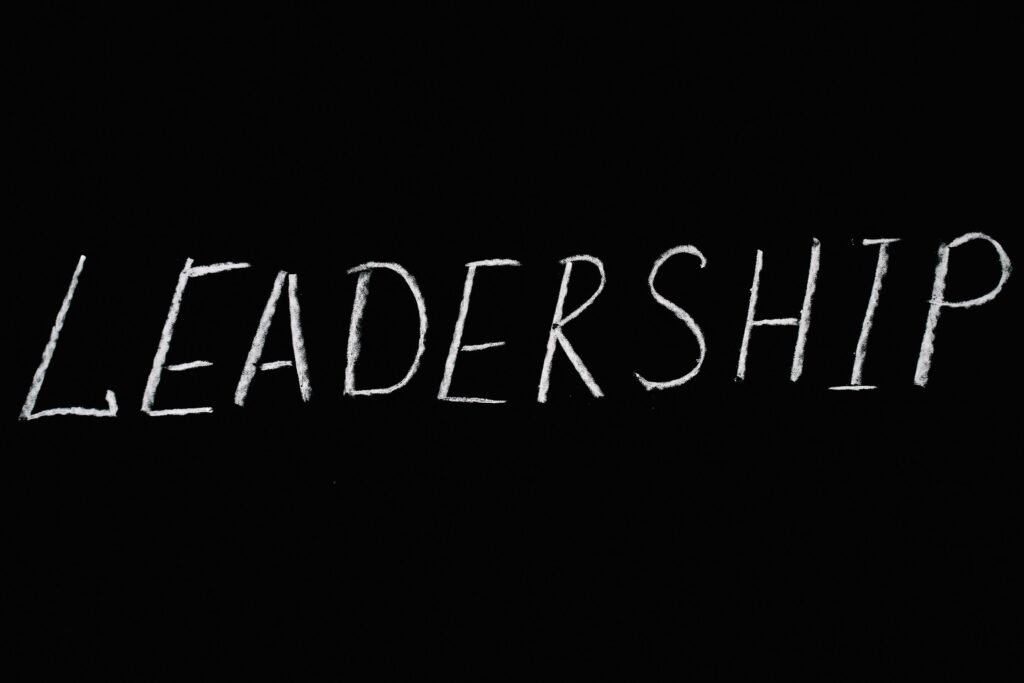
Introduction to Self Empowerment
Self empowerment is the ability to take charge of your own life and decisions, fostering a sense of control and responsibility.
It’s about recognizing your own potential and using your strengths to guide your life in the direction you choose.
This journey starts with self awareness; understanding your values, passions, and goals. When you know what drives you, it’s easier to make decisions that align with your true self.
One of the first steps to self empowerment is to stop looking for external validation.
It’s common to seek approval from others, but this often leads to making choices that don’t truly serve your interests. Instead, focus on what makes you happy and fulfilled.
Trust your instincts and learn to say no to things that don’t align with your personal vision.
Self-empowerment also involves setting boundaries.
Whether in your personal or professional life, clear boundaries help you protect your time, energy, and emotional well being.
This might mean limiting interactions with negative influences or dedicating specific times for work and leisure.
Boundaries are essential for maintaining a balanced life where you can focus on what truly matters.
Another critical aspect is taking responsibility for your actions.
This means owning your decisions and their outcomes, both good and bad.
It’s easy to blame external factors when things go wrong, but true empowerment comes from acknowledging your role in every situation.
This accountability allows you to learn from your experiences and make better choices in the future.
Additionally, building a support network can greatly enhance your journey to self empowerment.
Surround yourself with people who encourage and inspire you.
This could be friends, family, mentors, or like-minded individuals who share your aspirations.
Positive relationships provide a strong foundation for personal growth and help you stay motivated during challenging times.
It’s also important to invest in yourself continuously.
This could be through education, skill development, or simply taking time for self care.
When you prioritize your growth, you’re better equipped to handle life’s challenges and seize opportunities that come your way.
Remember, the more you invest in yourself, the more empowered you become.
Lastly, practice resilience.
Life is full of setbacks and obstacles, but how you respond to them defines your path.
Resilience helps you bounce back from difficulties and keeps you moving forward.
Cultivating a resilient mindset allows you to view challenges as opportunities for growth, rather than insurmountable barriers.
Self-empowerment is an ongoing journey, requiring dedication and effort.
It’s about making conscious choices that lead to a more fulfilling and authentic life.
The Art of Leading

Leadership is about guiding yourself towards your goals while inspiring and motivating others.
Take Oprah Winfrey, for instance.
She has pursued her dreams and helped empower countless people along the way.
Developing leadership skills is essential for unlocking your potential and taking control of your life.
Start by honing your communication abilities.
Clear, effective communication is a cornerstone of leadership.
Whether you’re leading a team or managing your personal projects, the ability to articulate your vision and expectations is crucial.
Practice active listening, which not only helps you understand others better but also fosters a collaborative environment.
Empathy is another critical leadership skill.
Understanding the emotions and perspectives of others allows you to connect on a deeper level.
This connection builds trust and encourages open, honest dialogue.
Leaders who practice empathy are better equipped to inspire and motivate their teams, as well as navigate conflicts and challenges with compassion.
Building confidence is also vital.
Confidence in your abilities and decisions inspires others to trust and follow you.
Confidence isn’t about never making mistakes; it’s about trusting yourself to handle whatever comes your way.
One way to build confidence is by celebrating small victories and learning from your experiences.
Leading also involves making tough decisions.
This requires a balance of intuition and rational thinking.
It’s essential to gather all necessary information, consider the possible outcomes, and trust your gut when making decisions.
This decisiveness can help you move forward and maintain momentum in your personal and professional life.
Moreover, effective leaders create a positive environment.
Surround yourself with individuals who uplift and inspire you.
Positive energy is contagious, and fostering a supportive atmosphere can lead to increased motivation and productivity.
Recognize and appreciate the contributions of those around you.
Acknowledging others’ efforts not only boosts morale but also reinforces a culture of mutual respect and encouragement.
Leadership isn’t a one size fits all approach.
Different situations call for different styles.
Flexibility and adaptability are key.
Be willing to adjust your approach based on the needs of the moment and the people involved.
This adaptability helps you navigate the complexities of leadership and stay effective in various scenarios.
Finally, always be willing to grow.
Leadership is an ongoing journey.
Seek feedback, invest in your development, and remain open to new ideas and perspectives.
This commitment to continuous improvement ensures that you stay relevant and effective as a leader.
The Role of Following Wisely

Following wisely is an essential strategy for personal growth and professional development.
It’s about choosing the right mentors and role models who can provide valuable guidance, knowledge, and inspiration.
Observing how others navigate challenges, make decisions, and achieve their goals can offer insights that you can apply to your own journey.
When selecting whom to follow, it’s crucial to choose individuals who align with your values and aspirations.
Look for mentors who have successfully achieved what you aim to accomplish.
By studying their paths, you can learn what works and avoid potential pitfalls.
This doesn’t mean copying their every move, but rather adapting their strategies to fit your unique circumstances and goals.
One way to follow wisely is by actively seeking out learning opportunities.
Attend workshops, webinars, and conferences where you can gain insights from experts in your field.
Read books, articles, and case studies written by industry leaders.
Engaging with diverse perspectives can broaden your understanding and spark innovative ideas.
Building strong mentor-mentee relationships is another key aspect of following wisely.
A good mentor can provide not only knowledge but also encouragement and support.
Reach out to potential mentors with a clear idea of what you hope to learn from them.
Show genuine interest in their work and express how their guidance can help you grow.
Remember, a mentor’s time is valuable, so approach these relationships with respect and a willingness to put in the effort.
Following wisely also involves being open to feedback.
Constructive criticism from those you admire can be a powerful tool for growth.
It helps you identify areas for improvement and develop new skills.
Embrace feedback with a positive attitude and a commitment to continuous learning.
Networking is another important element.
Surround yourself with a community of like minded individuals who share your ambitions.
Engaging with peers who are also on a path of growth can provide mutual support and motivation.
Participate in professional groups and online forums where you can exchange ideas, share experiences, and build connections.
Ultimately, following wisely means being strategic about whom you learn from and how you apply that knowledge.
It’s a proactive approach to personal and professional development that can significantly accelerate your progress toward your goals.
Removing Obstacles

Obstacles can appear in many forms, and they often stem from internal and external sources.
Fear of failure is a common barrier.
Many people hesitate to pursue their dreams because they worry about making mistakes or falling short of expectations.
To combat this, reframe your mindset around failure. Instead of viewing it as a setback, see it as an opportunity to learn and grow.
Every failure brings valuable lessons that can guide you toward eventual success.
Lack of confidence is another significant hurdle.
Building self confidence requires patience and practice.
Start by setting small, achievable goals and celebrating your accomplishments.
Over time, these successes will help build a foundation of self belief that you can draw upon in more challenging situations.
Affirmations and positive self talk can also be powerful tools for boosting confidence.
Remind yourself of your strengths and past achievements to reinforce a positive self image.
Negative influences can significantly impede your progress.
These might include toxic relationships, unsupportive environments, or even self doubt.
It’s essential to identify these negative forces and take steps to minimize their impact.
This might mean distancing yourself from certain individuals or finding new, positive communities that encourage your growth.
Surround yourself with people who believe in you and your potential, as their support can be a powerful motivator.
Time management issues often create obstacles as well.
Poor organization can lead to procrastination and missed opportunities.
To overcome this, develop effective time management strategies.
Prioritize your tasks, create to do lists, and set deadlines for yourself.
Breaking larger tasks into smaller, manageable steps can make them feel less overwhelming and easier to tackle.
Financial constraints are another common barrier.
While money isn’t everything, it can be a significant factor in pursuing certain goals.
Look for creative solutions to overcome financial limitations.
This might include seeking scholarships, applying for grants, or finding cost effective ways to achieve your objectives.
Additionally, developing a budget and financial plan can help you allocate resources more effectively and make informed decisions about where to invest your time and money.
Perfectionism is a less obvious but equally daunting obstacle.
Striving for perfection can lead to inaction, as you might delay starting a project until conditions are “just right.”
Accept that perfection is an illusion and focus instead on making consistent progress.
Aim for excellence, but recognize that mistakes and imperfections are part of the journey.
By identifying and addressing these obstacles, you can create a clearer path toward achieving your goals and unlocking your full potential.
Harnessing Motivation and Discipline

Motivation gets you started, but discipline keeps you going.
To truly unlock your full potential, it’s essential to develop a strong sense of discipline that complements your motivation.
Start by setting specific, clear goals. Vague objectives can lead to confusion and procrastination, while well defined goals provide a roadmap for action.
Once your goals are set, break them down into smaller, actionable steps.
This makes large tasks feel more manageable and less intimidating.
Establishing a routine is a critical component of discipline.
Consistency helps ingrain productive habits and reduces the mental effort required to start tasks.
Create a daily or weekly schedule that includes dedicated time slots for working on your goals.
Stick to this schedule as closely as possible to build momentum over time.
Accountability is another powerful tool for maintaining discipline.
Share your goals with a friend, family member, or mentor who can provide support and check in on your progress.
Knowing that someone else is aware of your objectives can motivate you to stay on track.
Alternatively, consider joining a group of like-minded individuals who share similar aspirations.
This community can offer encouragement and hold you accountable.
Another effective strategy is to eliminate distractions.
Identify the factors that typically derail your focus and find ways to minimize them.
This might involve creating a dedicated workspace, turning off notifications on your devices, or setting specific times for breaks.
By reducing distractions, you can maintain a higher level of concentration and productivity.
Reward yourself for your achievements, no matter how small.
Celebrating your progress reinforces positive behavior and makes the journey toward your goals more enjoyable.
Whether it’s a small treat, a break, or an activity you enjoy, rewards can provide a motivational boost and encourage you to keep going.
Finally, practice self discipline by setting boundaries for yourself.
This includes knowing when to say no to activities or commitments that don’t align with your goals.
Learning to prioritize your time and energy effectively will help you stay focused on what truly matters.
Real life Success Stories

Consider the journey of J.K. Rowling, who faced numerous rejections before achieving phenomenal success with the “Harry Potter” series. Her story highlights the importance of persistence and self belief.
Rowling’s determination to continue writing, despite countless setbacks, serves as an inspiration for anyone striving to reach their goals.
She used the feedback from her rejections to refine her work, proving that obstacles can be stepping stones to success.
Another compelling example is Elon Musk.
Known for his ventures in multiple industries, Musk started by learning from existing leaders before establishing himself as a visionary entrepreneur.
He studied the successes and failures of those in the technology and automotive industries, gaining valuable insights that he later applied to his own companies like SpaceX and Tesla.
Musk’s ability to follow wisely and then lead with innovation showcases the balance between learning from others and forging your own path.
Sara Blakely, the founder of Spanx, also demonstrates the power of resilience and self empowerment.
Before her company became a household name, Blakely faced numerous challenges, including financial constraints and skepticism from industry experts.
She took a hands on approach, learning from every aspect of her business, from product development to sales.
Her story underscores the importance of being proactive and adaptable in the face of adversity.
Similarly, Dwayne “The Rock” Johnson’s career trajectory is a testament to the power of hard work and adaptability.
Starting as a professional wrestler, Johnson transitioned into acting and producing, becoming one of the most bankable stars in Hollywood.
His willingness to evolve and take calculated risks has allowed him to excel in multiple arenas.
Johnson’s story illustrates the importance of continuous self improvement and seizing opportunities as they arise.
Finally, Oprah Winfrey’s journey from a challenging upbringing to becoming a media mogul exemplifies how leading with empathy and authenticity can inspire others.
Winfrey’s ability to connect with people on a deep level has not only propelled her career but also empowered countless individuals worldwide.
Her story shows that true leadership involves uplifting others while staying true to oneself.
Conclusion and Next Steps

Taking control of your life is a multifaceted journey that requires intentional action and a strong mindset.
Begin by identifying your core values and setting clear, achievable goals.
Break these goals into smaller steps and create a routine that incorporates dedicated time for personal growth.
Surround yourself with positive influences and seek out mentors who can provide valuable guidance and support.
Reflect on the obstacles you currently face and develop strategies to overcome them.
Whether it’s managing time more effectively, building confidence, or eliminating negative influences, each step you take brings you closer to realizing your potential.
Remember to celebrate your progress, no matter how small, and use these victories as motivation to keep pushing forward.
Invest in continuous learning and skill development to stay adaptable and resilient.
Embrace feedback and view challenges as opportunities to grow.
By maintaining a balance between leading and following, you can draw inspiration from others while forging your own unique path.
Lastly, practice discipline by setting boundaries and holding yourself accountable.
Share your goals with someone who can provide support and encouragement, and don’t hesitate to make adjustments as needed.
The journey to unlocking your full potential is ongoing, requiring commitment and effort.
Start today by taking a single step toward your aspirations.
Whether it’s dedicating time to a new project, reaching out to a potential mentor, or simply reflecting on your goals, every action counts.
By staying focused and determined, you can create a fulfilling and authentic life.
